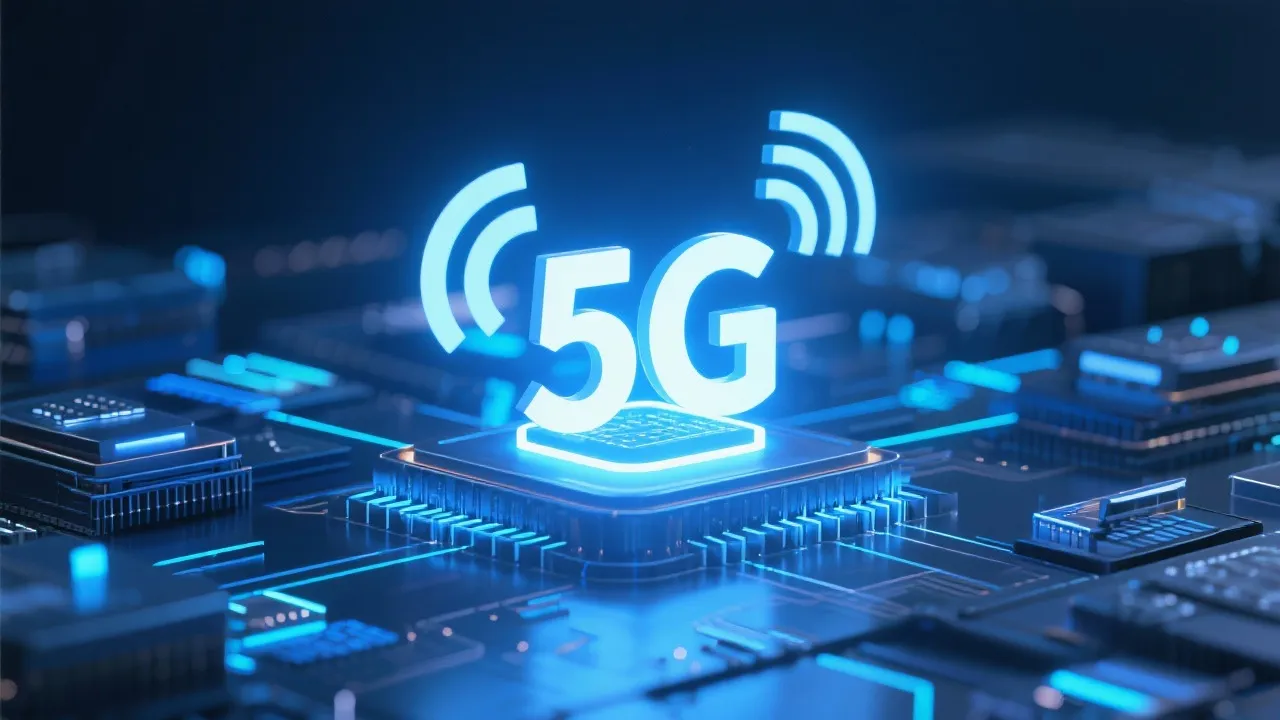This article explores the advancement in 5G Internet, highlighting its implications on connectivity, speed, and the global market. 5G Internet refers to the fifth generation of mobile networks, which promises faster data transfer rates and more reliable communication. Various Internet service providers offer diverse plans that incorporate 5G technology, enhancing connectivity for both urban and rural areas.

The advent of 5G Internet marks a significant milestone in the evolution of digital communication, ushering in faster, more efficient connectivity. As we delve into this cutting-edge technology, 5G stands to revolutionize how we engage with the digital world, offering unprecedented speeds and reliability. It encompasses a broader spectrum of applications, from enhanced mobile broadband to ultra-reliable Low Latency Communication (uRLLC), paving the way for enhanced connectivity solutions across various sectors.
5G technology not only provides improved speed and connectivity but also creates opportunities for advancements in multiple fields such as autonomous vehicles, smart cities, telemedicine, and augmented and virtual reality. With the capability to support a vast number of connected devices simultaneously, 5G promises to facilitate a more interconnected world, where everything from household appliances to industrial machines communicates seamlessly.
In today's competitive market, Internet service providers are at the forefront of integrating 5G technology into their offerings. Below is a comparative overview of several major providers, highlighting their plans and key features:
| Provider | Plans & Pricing | Features |
|---|---|---|
| Xfinity Internet | $19.99/mo for 50 Mbps; $39.99/mo for 100 Mbps | No contracts, access to Wi-Fi hotspots |
| AT&T Fiber | $55/mo for 300 Mbps; $80/mo for 1,000 Mbps | Symmetrical speeds, reliable fiber connection |
| Spectrum Internet | $50/mo for 500 Mbps; $70/mo for 1,000 Mbps | Unlimited data, affordable modem |
| T-Mobile | $50/mo for 100 Mbps; $70/mo for 500 Mbps | No data cap, mobile 5G access |
| Verizon 5G Home Internet | $50/mo with autopay; $70/mo without | Low latency, throughput near 1 Gbps |
Sources: [Xfinity Internet](https://www.xfinity.com/), [AT&T Fiber](https://www.att.com/internet/fiber/), [Spectrum Internet](https://www.spectrum.com/), [T-Mobile 5G Home Internet](https://www.t-mobile.com/isp), [Verizon 5G](https://www.verizon.com/home/fios/)
Accessing affordable Internet is vital for a significant percentage of users, ensuring widespread digital inclusion. Here are several steps and considerations for securing low-cost Internet options:
Internet pricing and speeds vary globally, influenced by regional infrastructure and market competition. Here's an overview of the typical pricing brackets and available speeds in select countries:
Moreover, understanding these global benchmarks allows consumers not only to gauge their current service but also to demand better options, fostering a competitive marketplace.
The technological framework of 5G relies on a combination of new technologies including millimeter waves, massive MIMO (multiple-input multiple-output), and beamforming. Millimeter waves, which operate at much higher frequencies than previous generation mobile networks, provide substantial bandwidth but have shorter range and require more infrastructure for optimal coverage.
Massive MIMO refers to the deployment of numerous antennas on a single site to boost capacity and coverage. This allows more data to be transmitted simultaneously, significantly enhancing network efficiency. Beamforming technology helps direct the signal to specific users rather than broadcasting it over a wide area, which increases the efficiency of resource utilization and significantly improves user experience.
5G technology opens avenues for several applications that were previously limited due to bandwidth and latency constraints. Below are some promising use cases:
What distinguishes 5G Internet from previous generations?
5G Internet offers significantly faster data download and upload speeds, lower latency, and more reliable connectivity than 4G LTE. This enables better performance especially in environments with numerous devices connected concurrently.
How widespread is 5G availability?
5G is increasingly available in urban areas globally, with expansion underway for rural connectivity. However, coverage still varies by region, with urban centers typically gaining access sooner than rural areas.
Does 5G require a new type of device?
Yes, accessing 5G networks typically requires a device that supports 5G technology, which may include newer smartphones and compatible hardware. Older devices will not be able to connect to 5G networks.
What impact does 5G have on everyday consumers?
For everyday consumers, 5G provides a more responsive and faster Internet experience across devices, enhancing activities such as streaming, gaming, and working from home by significantly improving download and upload speeds.
With great technological advancement often comes a set of challenges and concerns. The rollout of 5G is no exception, with several issues warranting attention:
5G Internet stands at the core of the next digital revolution, promising enhanced capabilities for both personal and professional use. As it becomes more widely implemented, users can expect not only faster and more reliable Internet but also innovative applications that transform how we live and work. The transition to 5G is not merely about speed; it represents a major shift in how technology can enhance quality of life and societal functions.
Disclaimer:
1) The above information comes from online resources, and the data is as of October 2023.
2) The specific access requirements and methods are subject to the official requirements of the Internet service provider. This website will not be updated in real time.
References: [Xfinity Internet](https://www.xfinity.com/), [AT&T Fiber](https://www.att.com/internet/fiber/), [Spectrum Internet](https://www.spectrum.com/), [T-Mobile 5G Home Internet](https://www.t-mobile.com/isp), [Astound Broadband](https://www.astound.com/), [Verizon Fios](https://www.verizon.com/home/fios/).
Explore the Tranquil Bliss of Idyllic Rural Retreats

Ultimate Countdown: The 20 Very Legendary Gaming Consoles Ever!

Understanding Halpin and its Influence

Affordable Full Mouth Dental Implants Near You

Discovering Springdale Estates

Illinois Dentatrust: Comprehensive Overview

Embark on Effortless Adventures: Unveiling the Top in Adventures Made Easy Outdoor Equipment

Unveiling Ossur Valves: Innovation in Prosthetics

Unlock the Full Potential of Your RAM 1500: Master the Art of Efficient Towing!
